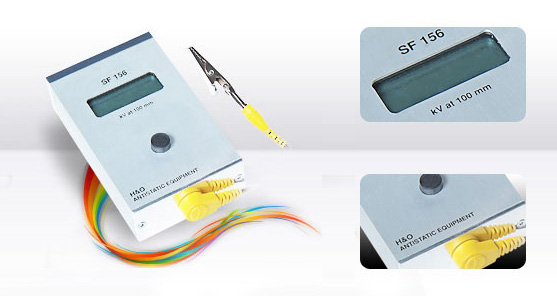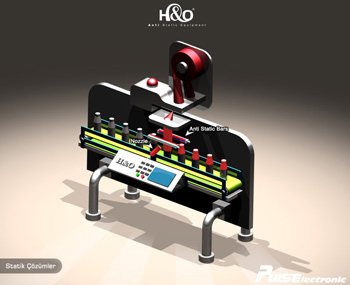
To analyze and solve the static troubles without measuring the charge is very complicated. So utilization of static meter will be a good decision for technical personnel to solve troubles caused by static electricity. Static meter shows amplitude and polarity of static electricity and where and how it was generated. It is quick to expose positive and negative loads up to 160.000 Volts. If to solve trouble the static eliminator is needed, static meter will rate the most appropriate position for static eliminator and show its performance. Static meter forms standards due to that would be solved future static troubles and enhanced work of technical personnel. These standards are varied from charging level of dangerous areas to charging level of ordered, produced or sent to client product. Its accuracy, stability of easement in use and convenient size of device make Puls static meter an ideal instrument for engineers.
General Specification
- Rapid and simple in use
- Compact design
- LCD display
Technical specifications
| Measurement Range | 0-160 kV Full Scale | ||
| Resolution | 100 V | ||
| Drift | Less than 1% | ||
| Accuracy | Better than +/-5% | ||
| Display | 31/2 Digit, LCD Display and low battery indication | ||
| Control | Push Button | ||
| Power Supply | 9 Volt Replaceable Battery | ||
| Dimensions | 150 x 66 x 32 mm | ||
| Accessory | Case, protective strap,operating instruction |
Application
Sleeving Machines Application Sheet

On automated sleeving machines, the problems arise as the sleeve is opened for fitting to the bottle. As the sleeve ?s opened, the two surfaces are separated and electrons migrate from one surface to another. As the material is Non conductive, it cannot re-address the imbalance and retains the static charge.
The charged labels will now become attracted to an earth potential or a charge of the opposite polarity. If the bottle the label is being fitted to is of the same polarity, the label will repel and jam causing waste and rejects. If the bottle is of the opposite polarity, the label will be attracted to bottle too quickly and the syncronisation will be out, causing jams, down time and waste.
By neutralising the bottles prior to the label being fitted, you will eliminate the chance of material misbehavior and miss aligning. This will reduce waste and rejects and increase volume, productivity and profits.